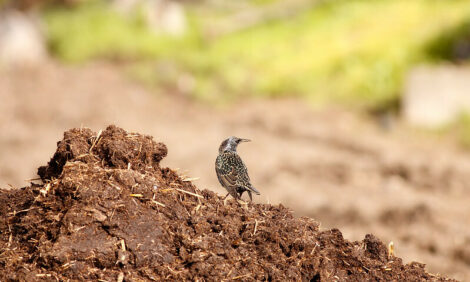



WVPAC 2015: Spent Hen Industry Regulation Needed to Prevent Newcastle Disease
SOUTH AFRICA - Whilst avian influenza is currently a big concern in the United States, Europe and China, South Africa is struggling to get a grip on Newcastle Disease, reports Glenneis Kriel from the Congress of the World Poultry Veterinary Association in Cape Town.The viral disease has different strains that either affect the respiratory tract, the intestines or nervous system of birds.
Symptoms depend on the affected area with mortalities vary from marginal to 90 per cent depending on the severity of the virus, Prof Celia Abolnik, from the Faculty of Veterinary Studies at the University of Pretoria in South Africa, told delegates.
While the disease is highly contagious, Prof Abolnik believes that South Africa could move to a complete disease-free status by improving biosecurity.
She explained that Newcastle Disease was highly contagious and that it usually spread from one bird to another via faecal, oral and respiratory routes. Road transportation is however playing a big part in spreading the disease to different regions.
She said that the spent hen industry, which was quite big in South Africa, was especially a problem: “Cull buyers buy up to a thousand chickens from a farm at a time. These chickens are often taken to a central depot where birds from other farms are mixed.
"From there they are sold to hawkers or other individuals, who usually sell the birds live for the pot in other areas,” Prof Abolnik explained.
She added that the industry was thriving because farmers received up to $3.10 a hen, which helps to recoup replacement costs of about US $4.40.
The birds sold at a premium for about $6.00, because these birds are bigger than the ones sold in the supermarkets and therefore perceived as being more healthy. She said that the market and movement of these birds were completely unregulated and they therefore posed a huge biosecurity risk.
“While government has put regulations in place for Newcastle Disease management, it would have to become more tough on the movement of animals to reduce disease risks,” she said.
The same applies to village chickens. She pointed out that South Africa recorded its first pathogenic outbreak in 1945. Since 1999, there has however been various outbreaks with some time in between that the country was free from the virus.
“The disease usually broke out in areas where village chickens were kept from where it spread to commercial farms and other parts of the country, as well as to neighbouring countries, such as Zimbabwe and Mozambique.
"The opposite has however also occurred, where the disease spread from commercial farms or from neighbouring countries,” Prof Abolnik said.
Village farmers therefore need to be better informed of the risk of Newcastle Disease and measures should be introduce to reduce to reduce the risk of their chickens becoming infected or to prevent the risk from spreading from their chickens to commercial farms.
“Farmers should also play in a role in this. It is not enough to ensure that biosecurity measures on your farm are in tact. You also have a social responsibility to look out for what is happening on your neighbour’s farms,” she said.
Prof Abolnik identified certain wild bird species, such as egrets and sacred ibises, as carriers of the disease that are often not affected by it. “These birds usually become infected by feeding on poultry waste and culled chicks.
"They usually remain in the country throughout the year, where they are near dams and rivers. It is for this reason very important that the industry employ good waste management strategies and that waste is removed as effectively and rapidly as possible,” she said.








